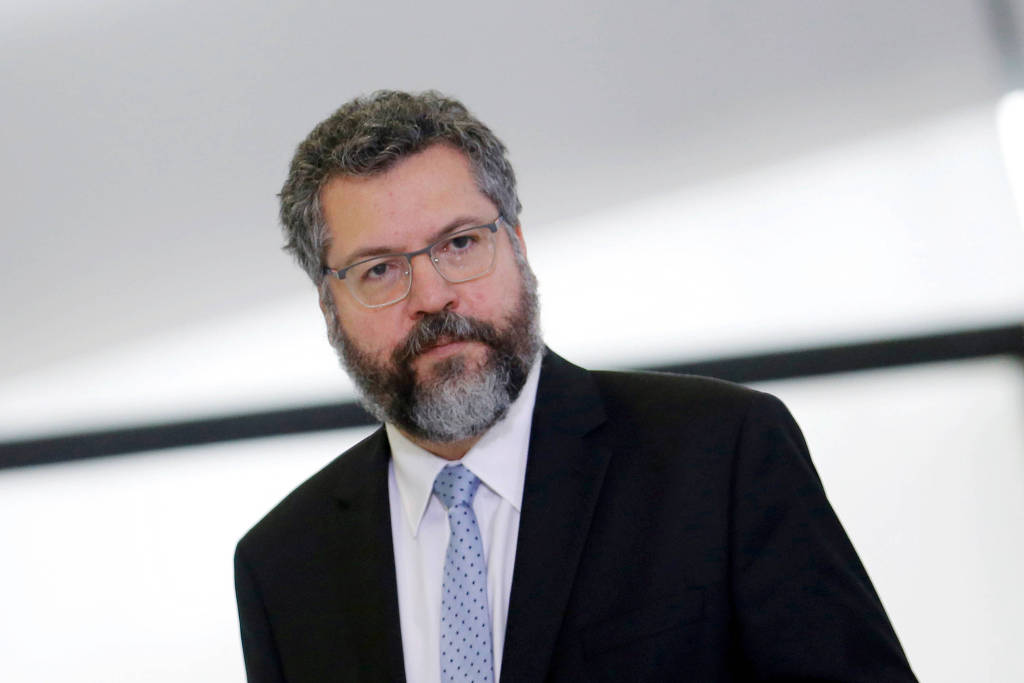RIO DE JANEIRO, BRAZIL – Jair Bolsonaro’s Brazil is seeking an alliance with the United States and “other democratic partners” to curb the rise of “techno-totalitarianism” in countries with “different social models” – that is, China.
The statement came during a World Economic Forum online panel debate by Brazilian Foreign Minister Ernesto Araújo.

He made a point of not naming “any specific country or company”, but all his interventions targeted China, Brazil’s largest trading partner and at the heart of the so-called vaccine war, for being the main producer of vaccine raw materials to be made in Brazil.
Araújo was joined by Spanish Foreign Minister Arancha González and Canadian Minister François-Philippe Champagne (former Foreign Relations, now Innovation), in a conversation mediated by the Forum’s chairman, Borge Brende.
The goal was to debate the concept of international cooperation in light of the reality of the Covid-19 pandemic and climate change – topics in which the Bolsonaro government’s denialism is notorious , fed by the ideological wing Araújo is part of.
While colleagues debated the need to ensure equitable immunization and address the challenges of demand for vaccines, Araújo instead chose to talk about the need to maintain values such as freedom in international relations.
“Any change in the U.S. is tremendous for us,” said the Foreign Minister, an outspoken fan of President Biden’s predecessor, Donald Trump. “If the focus is on climate change, fine, but we want to base the relationship on freedoms,” he said.
It was a skewed reference to the US$2 trillion climate package announced by the Democrat, which he endorsed last week.
“A challenge is the emergence of techno-totalitarianism. It’s not about the U.S. versus China, but it’s about different social models. New technologies may be great for democracy, but they can provide the means for a totalitarian state, and we don’t want that”.
“We want to address this issue with the United States and democratic partners,” he said, excluding the communist dictatorship from the equation.
“Whoever controls the debate has tremendous power. We must not leave this in the hands of players, and I am not talking about specific countries or companies that are not committed to freedom,” the Foreign Minister said.
If this was not a direct attack on China, as he has done in the past alongside exponents of Bolsonarism with the President’s sons, it was a poorly disguised declaration of principles -albeit sparing participants from the scheming of evil globalism that pervades his statements.
“When we look at the 1990s and 2000s, the notion was that China would become like the West. That did not happen. The West became more like China. We don’t have to change our society,” he said.
On climate change, which Araújo has already referred to as ideology, or Covid-19, which led to pressure on his position due to the problem in buying vaccine doses from India, he did not elaborate.
His colleagues were more cautious when asked about the consequences of the decoupling of countries’ technological models embodied in the dispute for the implementation of 5G networks – the so-called internet of things.
As is widely known, China offers a cheaper and more efficient product, but it is accused in the West of incorporating espionage or data theft components. The argument is alive in Brazil, which will theoretically decide this year who will be allowed to supply equipment and operate 5G in the country.
“We cannot allow separation [in international relations] when it comes to climate change. We have to prevent a confrontation [between China and the U.S.] at all costs,” González said, commenting on the European position in light of the giants’ fight.
Champagne agreed with Araújo about the need to promote democratic governance, but said the relationship with China is “rather complex”.
According to Araújo, the only way to deal with the matter is to leave the pending issues to be solved in institutions such as the World Trade Organization, provided they are reformulated – Brazil shares the American opinion that China does not play by their rules.
“The international system must reward democracy,” said the Brazilian.

